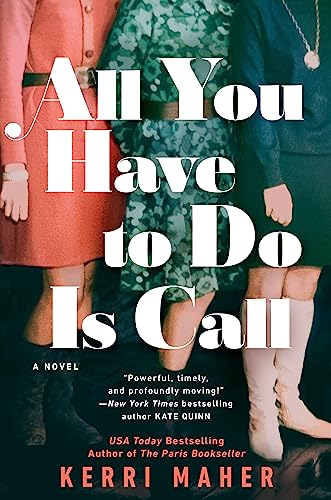All You Have to Do Is Call
In the early 1970s, a group of seven women created an underground network that provided illegal abortion services to Chicago-area women. Known simply as “Jane,” the organization has become almost legendary in its contribution to Second Wave feminism, as Maher notes in her afterword. The author creates her own fictional community of women around Jane, replacing the historical figures with what she imagines as a cross-section of social and familial roles for middle-class women of the time period. The action covers the tumultuous final year leading up to the landmark Roe v. Wade case, which legalized abortion and made Jane unnecessary after 1972.
However, as Maher points out, organizations like Jane may once again become instrumental in protecting women’s freedom of choice, so this novel is both timely and compelling. The central characters include a traditional housewife, a married abortionist, a divorced artist, and a single college professor; their parallel narratives intersect through work and friendship and create a kind of oral history of the Women’s Movement. Because of the multiple points of view, none of the characters are fascinating individually, their inner lives are a bit predictable, and their relationships with men a bit clichéd. The cast is overwhelmingly white, straight, and well-to-do, which makes this novel offer a very narrow slice of life. However, Maher’s sympathy for the cause, and her thoughtful choice to emphasize that many of the women who provided abortions were themselves mothers, makes this an enjoyable contribution to a growing body of literature examining the ways in which American feminism indelibly shaped the 1970s.










